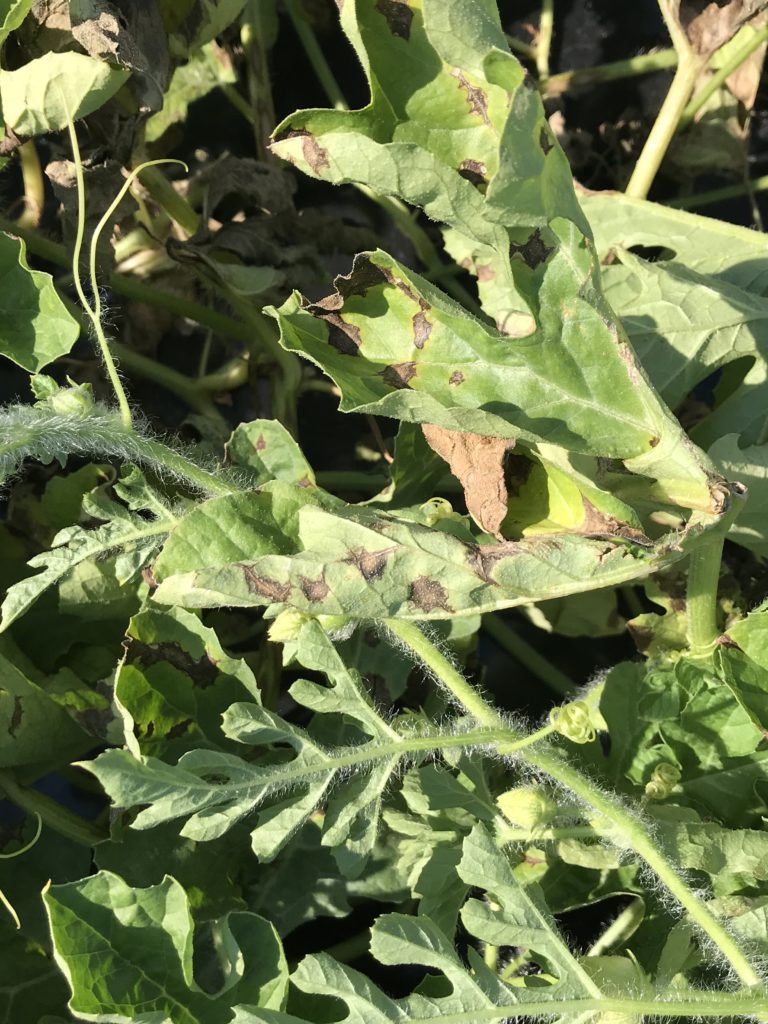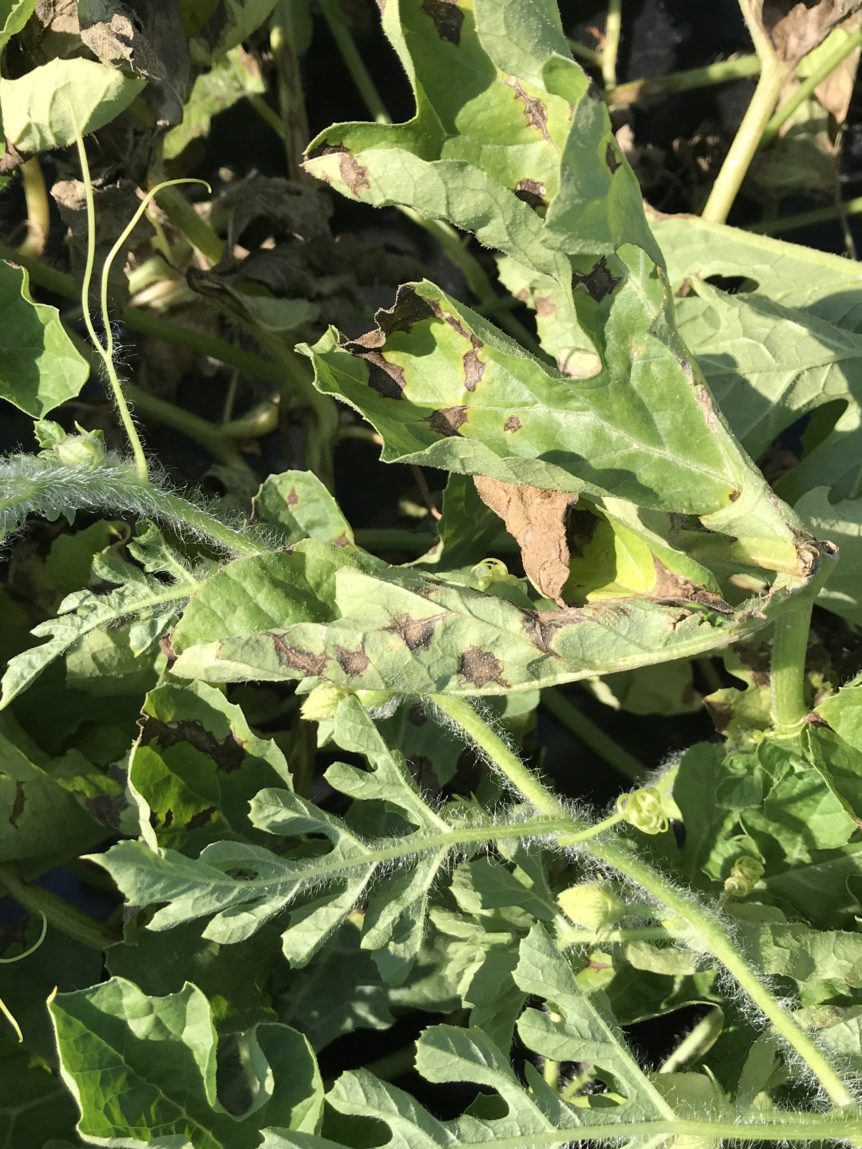
By Clint Thompson
North Florida watermelon growers have been able to manage most disease pressure this year; except for gummy stem blight. It has been the one disease that has been extremely problematic for producers, says Bob Hochmuth, University of Florida Institute of Food and Agricultural Sciences (UF/IFAS) Regional Specialized Extension agent in Live Oak, Florida.
“I’d say it’s more gummy stem blight than I can remember. I think the worry is we’ve only been able to slow it down. It has been very persistent,” Hochmuth said. “I think we’ve done a pretty good job, although it’s been very expensive, but we’ve done a pretty good job on downy mildew and powdery mildew, keeping it a little bit more at bay. But there are a lot of fields that have done everything they can possibly do for gummy, have slowed it down but have not conquered, and we’re not going to conquer gummy this year.”
Gummy Stem Blight Background
Gummy stem blight causes lesions on leaves and stems and leads to defoliation. The disease favors warm, wet conditions.
Only recently have weather conditions turned dry for farmers in the region. Producers experienced sporadic rainfall most of May, which enabled the disease to thrive.
“Before it turned dry, we had a lot of those real driving hard, windy, rainy storms. I think that’s where we got a lot of this gummy stem blight that has been the persistent one. I think generally we had a period there of good conditions for disease. It’s turned off dry and hot since then,” Hochmuth said. “Once the infection starts, the high temperatures and humidity have been good for the disease already in the infection phase to really expand pretty rapidly. I think that’s what we’re seeing. “I think we’ve had good conditions for the infection and good conditions for the expansion. Coupled with the fact that at best we’ve had decent but not excellent fungicides, specifically for gummy. I think that’s the problem is that we don’t have really good materials especially once you get close to harvest with the pre-harvest restrictions. I worry a lot right now because we just haven’t been able to stop it.”










